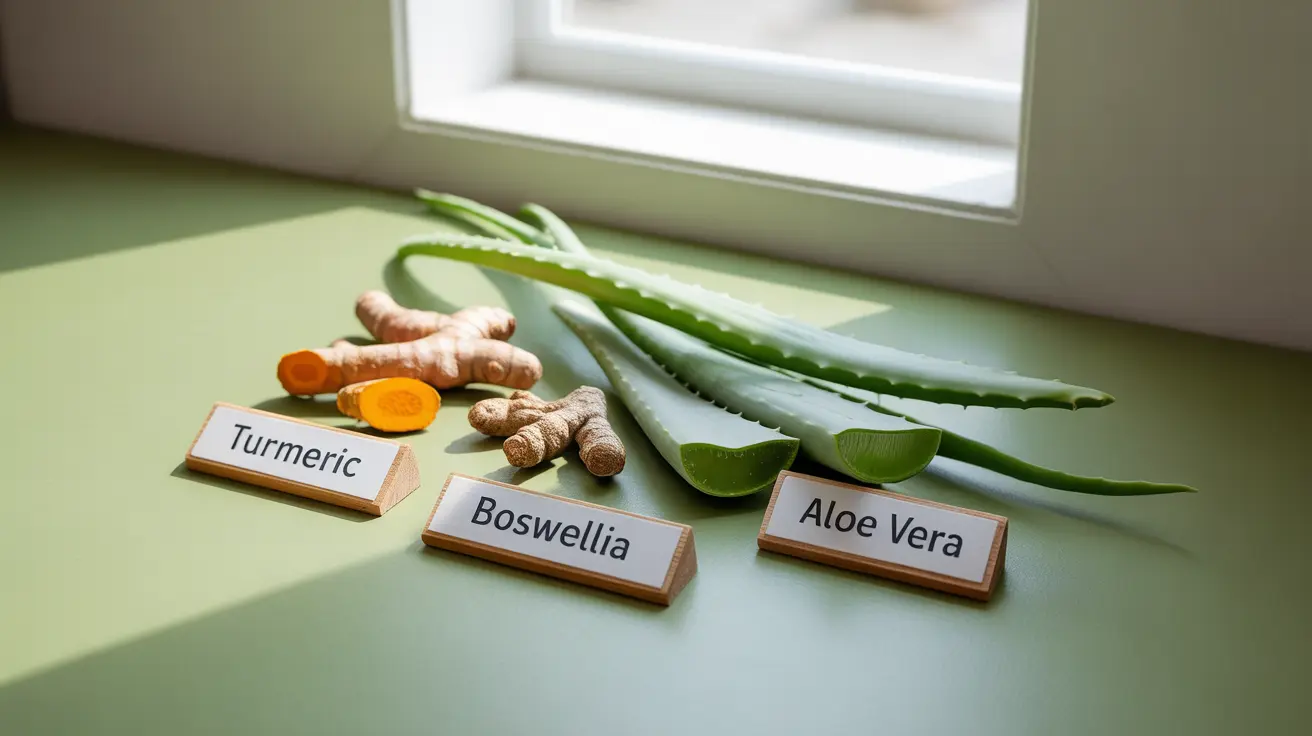Living with Crohn's disease can be challenging, and many people seek natural approaches to complement their conventional treatment. While herbs and supplements cannot replace prescribed medications, some natural remedies may help manage symptoms and support overall digestive health. This guide explores various herbs that show promise in supporting people with Crohn's disease.
Understanding Herbs in Crohn's Disease Management
Before incorporating any herbs into your Crohn's disease management plan, it's essential to understand their role as complementary treatments. These natural remedies may help reduce inflammation, support immune function, and ease digestive discomfort when used appropriately alongside prescribed medications.
Most Beneficial Herbs for Crohn's Disease
Turmeric and Curcumin
Turmeric, particularly its active compound curcumin, has shown significant anti-inflammatory properties. Research suggests it may help reduce inflammation in the digestive tract and potentially decrease the frequency of flare-ups. Many people with Crohn's disease find relief when incorporating turmeric supplements into their daily routine.
Boswellia (Indian Frankincense)
This ancient herb has demonstrated promising results in reducing inflammation and supporting digestive health. Studies indicate that Boswellia may help maintain remission in people with Crohn's disease by targeting specific inflammatory pathways in the body.
Aloe Vera
Aloe vera juice has gained attention for its potential benefits in managing Crohn's disease symptoms. Its natural healing properties may help soothe irritated digestive tissue and reduce inflammation. However, it's crucial to use only properly prepared aloe vera products specifically designed for internal use.
Safety Considerations and Precautions
While herbs can offer potential benefits, they also come with important safety considerations:
- Always consult with your healthcare provider before starting any herbal supplements
- Be aware of possible interactions with prescription medications
- Choose high-quality, standardized supplements from reputable manufacturers
- Start with low doses and monitor your body's response
- Discontinue use if you experience any adverse reactions
Integrating Herbs into Your Treatment Plan
The key to successfully incorporating herbs into your Crohn's disease management strategy lies in taking a balanced approach. Consider these steps:
- Work closely with your healthcare team
- Keep detailed records of how different herbs affect your symptoms
- Maintain your prescribed medication regimen
- Make gradual changes to allow for proper evaluation of effects
Frequently Asked Questions
What herbs are commonly used to help manage Crohn's disease symptoms?
Common herbs used for Crohn's disease include turmeric, Boswellia, aloe vera, slippery elm, and peppermint. These herbs are valued for their anti-inflammatory properties and ability to support digestive health.
How does aloe vera juice affect inflammation in Crohn's disease?
Aloe vera juice may help reduce inflammation in the digestive tract through its natural anti-inflammatory compounds. It can also help soothe irritated tissue and support the healing of damaged intestinal walls.
Are turmeric and curcumin effective supplements for reducing Crohn's disease flare-ups?
Research suggests that turmeric and curcumin may help reduce inflammation and decrease flare-up frequency in Crohn's disease. However, results vary among individuals, and these supplements should be used as part of a comprehensive treatment plan.
What are the potential risks and drug interactions of using herbal treatments for Crohn's disease?
Herbal treatments may interact with Crohn's medications, affect blood clotting, or cause allergic reactions. Some herbs can also irritate the digestive system or interfere with nutrient absorption. Always discuss herbal supplements with your healthcare provider.
Can herbal remedies replace conventional medication for Crohn's disease treatment?
No, herbal remedies should not replace conventional medications for Crohn's disease. They should be used as complementary treatments alongside prescribed medications under medical supervision. Stopping prescribed medications can lead to serious complications.




